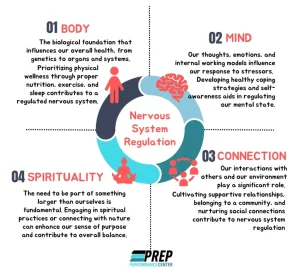
Floatation is an incredible tool that enables individuals to reset their nervous systems. This technique offers numerous short-term advantages that may enhance mental wellbeing, including better sleep and faster recovery following exercise.
Floating engages your body’s relaxing parasympathetic nervous system and decreases cortisol, leading to deeper, restorative sleep. Furthermore, floating promotes vasodilation that may help lower high blood pressure.
Improved Sleep
Floating activates your body’s relaxation response, leading to deep restful sleep. It may even help reset jet lag-induced sleep cycles or ease chronic conditions like arthritis and rheumatoid arthritis while relieving pain relief as well as aiding the release of endorphins.
Research has demonstrated that floating facilitates the release of beta-endorphins – your body’s natural painkillers and mood enhancers – as well as vasodilation which allows your body to more quickly flush lactic acid after workouts, aiding recovery.
Floating has also been shown to reduce anxiety and improve sleep quality for a variety of ailments including PTSD, anxiety disorders, disordered sleeping patterns and insomnia. This effect is likely attributable to sensory deprivation combined with deep relaxation techniques as well as shifting consciousness that mimics sleeping state – lasting effects can even linger after your session has ended.
Reduced Pain
Pain relief is one of the main draws to Flotation Therapy. People suffering from conditions like arthritis, fibromyalgia or back issues frequently report reduced pain levels and increased flexibility after attending regular floating sessions.
Floating helps soothe sore muscles by providing the body with an opportunity to unwind on an incredible deep level. Furthermore, flotation stimulates vasodilation which results in improved blood flow throughout your entire system – this is particularly helpful for people suffering chronic pain or high blood pressure.
Floating has also been shown to aid people with their meditation and sleep practices, which is essential as proper rest enhances immune function and decreases chronic illness risk. A well-rested body also benefits cognitive performance as well as athletic performance.
Increased Energy
When you float, your mind and body become naturally calm and relaxed – this sensation should last several days.
Endorphins, natural painkillers produced by your body, help reduce feelings of anxiety, stress, and depression. Furthermore, floating can increase vasodilation which in turn lowers blood pressure by increasing circulation to your heart and extremities for improved oxygenation and nutrient delivery to brain and limbs.
During a float, both halves of your brain can synergise with each other to facilitate deep insights and nonlinear connections that help break free from limiting beliefs or habits.
Professional sports teams have utilized flotation therapy for years as a form of recovery and to improve mental and visual skills, leading to increased performance and better sleep cycles, among other benefits. Regular flotation can bring many positives changes into one’s life – just make sure that it becomes part of your routine if you want the best results!
Reduced Anxiety
When you float, blood vessels dilate and the nervous system relaxes, according to neuropsychologist Justin Feinstein’s 2018 study on floating. Additionally, floating has also been proven to significantly decrease anxiety among all participants – even those suffering from severe PTSD. Furthermore, floating has been known to decrease inflammation, ease high blood pressure, increase overall happiness, serenity, and well-being.
Feinstein believes this may be because floating can reduce sympathetic nervous system activity (“fight or flight”) while increasing parasympathetic activity (“rest and digest”), thus reducing heart rate, blood pressure, and breath rate and slowing breathing rates.
Flotation allows you to reach Theta state, which enables access to your unconscious mind, helping you make new connections, solve problems and enhance cognition. In turn, this increased clarity and awareness can help ease anxious thoughts more readily while unfreezing belief structures – and as it’s non-pharmaceutical and non-invasive it doesn’t pose the same side effects as many of the common anxiety medications available today.







